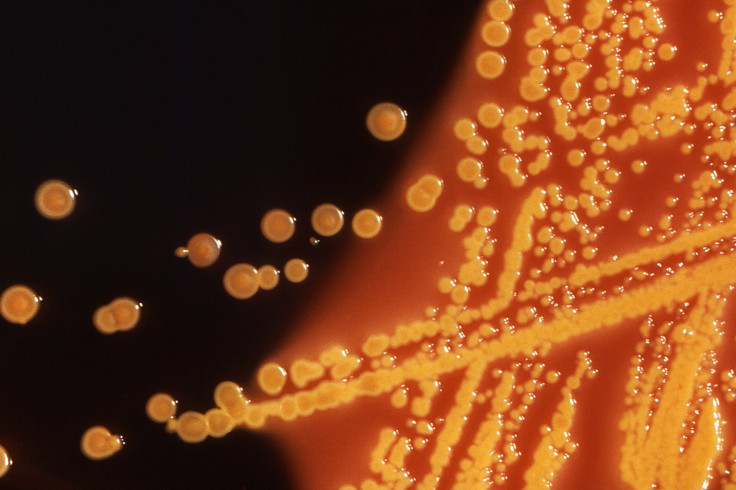Superbug Gene That Makes E. Coli Resistant To Last-Resort Antibiotics Discovered For The Second Time In US

Less than two months after scientists discovered the first-ever case of a bacterium resistant to last-resort antibiotics in the U.S., another “superbug” has been discovered in the country. And, according to a study published in the journal Antimicrobial Agents and Chemotherapy, this superbug gene — MCR-1 — which makes E. coli resistant to the last-resort antibiotic colistin — was present in a sample collected in New York over a year ago.
The researchers from JMI Laboratories in Iowa detected 390 cases of resistance among the over 20,000 samples of E. coli and Klebsiella pneumoniae collected from 10 countries in 2014 and 2015. Of these, 19 were found to have the MCR-1 gene.
“The fact that the gene has been detected in food livestock and raw meat is also concerning,” co-author Mariana Castanheira, director for molecular and microbiology at JMI Laboratories, said in a statement. “The prospect of a mobile gene encoding resistance to colistin spreading among isolates resistant to most antimicrobial agents clinically available is threatening for the therapy of serious infection caused by isolates.”
Over the past decade, as indiscriminate and improper use of antibiotics has surged, the rise of superbugs has become a serious global health concern. According to a recent British government-commissioned review, Antimicrobial Resistance (AMR), which already kills roughly 700,000 people every year, may, by 2050, lead to a staggering 10 million deaths annually.
“Even at current rates, it is fair to assume that over one million people will have died from AMR since I started this review in the summer of 2014,” economist Jim O'Neill — who was appointed by British Prime Minister David Cameron to head the review — said in the report.
Although, in this particular case, the presence of the MCR-1 gene rendered the bacteria resistant to colistin but not to other forms of antibiotics such as cephalosporins and carbapenems, the presence of colistin resistance is worrying as it increases the chance of the gene being transferred to bacteria already resistant to other antibiotics, creating a full-fledged superbug.
“It's basically a wake-up call,” Frank Esper, a pediatric infectious disease specialist at University Hospitals Case Medical Center in Cleveland, who was not involved in the study, told ABC News. “It's only going to be a matter of time where the perfect storm happens ... Next thing you know, you throw your hands up and say we're out of ammunition.”
© Copyright IBTimes 2024. All rights reserved.






















